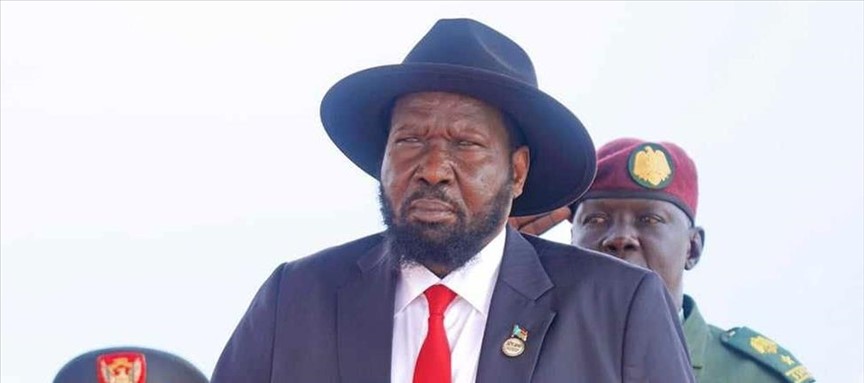South Sudan’s President Salva Kiir Mayardit on Tuesday evening reshuffled senior aides in his office, in what observers described as an attempt to tighten control amid growing concerns over corruption and political lobbying inside the presidency.
In a series of presidential decrees read on state-owned South Sudan Broadcasting Corporation (SSBC), Kiir dismissed Ambassador Sebit Bullen Komonde, Chief Administrator in the Ministry of Presidential Affairs, and replaced him with Valentino Dhel Malueth.
He also removed Yar Peter Machar as Chief of State Protocol in the Office of the President, appointing Ambassador Sunday Chot Riek as her successor and promoting him to Grade One Ambassador in the Ministry of Foreign Affairs.
The president further dismissed Juan Alice Joshua, head of legal administration in the Office of the President, and replaced her with Athian Akec. In another decree, Kiir appointed Ambassador Marina Ayen Gregory Vasilli, a daughter of his brother-in-law Gregory Vasili, as Office Manager to the President.
No reasons were given for the changes, which came a day after Kiir sacked Presidential Affairs Minister Chol Ajongo and his office manager, Rita Kiden Lotua, who was subsequently appointed ambassador to Rwanda.
Political analysts said the latest wave of appointments and dismissals reflects a climate of uncertainty within the presidency, where decrees are often issued and revoked within days.
James Boboya Edmund, a Juba-based policy analyst, told Radio Tamazuj that the reshuffles have fueled confusion and fostered a culture of political lobbying rather than merit-based public service.
“For a second consecutive day, the national broadcaster has been dedicating airtime to decrees coming from the Office of the President,” Boboya said. “The people of South Sudan are very confused. They are looking for solutions to the country’s problems, yet what they see are constant rotations of officials.”
He added that political lobbying had replaced substantive policy discussion. “The lobby is no longer about improving public policy, but about getting people into those positions so they can benefit personally. This is very unfortunate,” he said.
Boboya questioned the purpose of the changes, saying they could only be justified if they improved the presidency’s effectiveness. “If those changes are made to bring sanity to the presidency so that it becomes more responsive to the needs of the people, then be it. But if not, then I don’t know what’s going to happen. You cannot rotate human beings like that,” he said.
He also said the frequent dismissals undermine South Sudan’s commitments to the United Nations Sustainable Development Goals, particularly those focused on reducing inequalities and building strong institutions.
Meanwhile, political observer Ter Manyang Gatwech alleged that an informal network he described as a “state mafia” wields considerable influence within the presidency.
“The president is not in full control of his own administration,” Gatwech said. “This ‘state mafia’ operates behind the scenes, even making high-level appointments and removals without his genuine authority. What we are witnessing now is not the exercise of power, but a desperate struggle by the president to reclaim it.”
Kiir’s latest shake-up comes amid public frustration over economic hardship and the slow implementation of the 2018 peace agreement ahead of elections expected next year.




